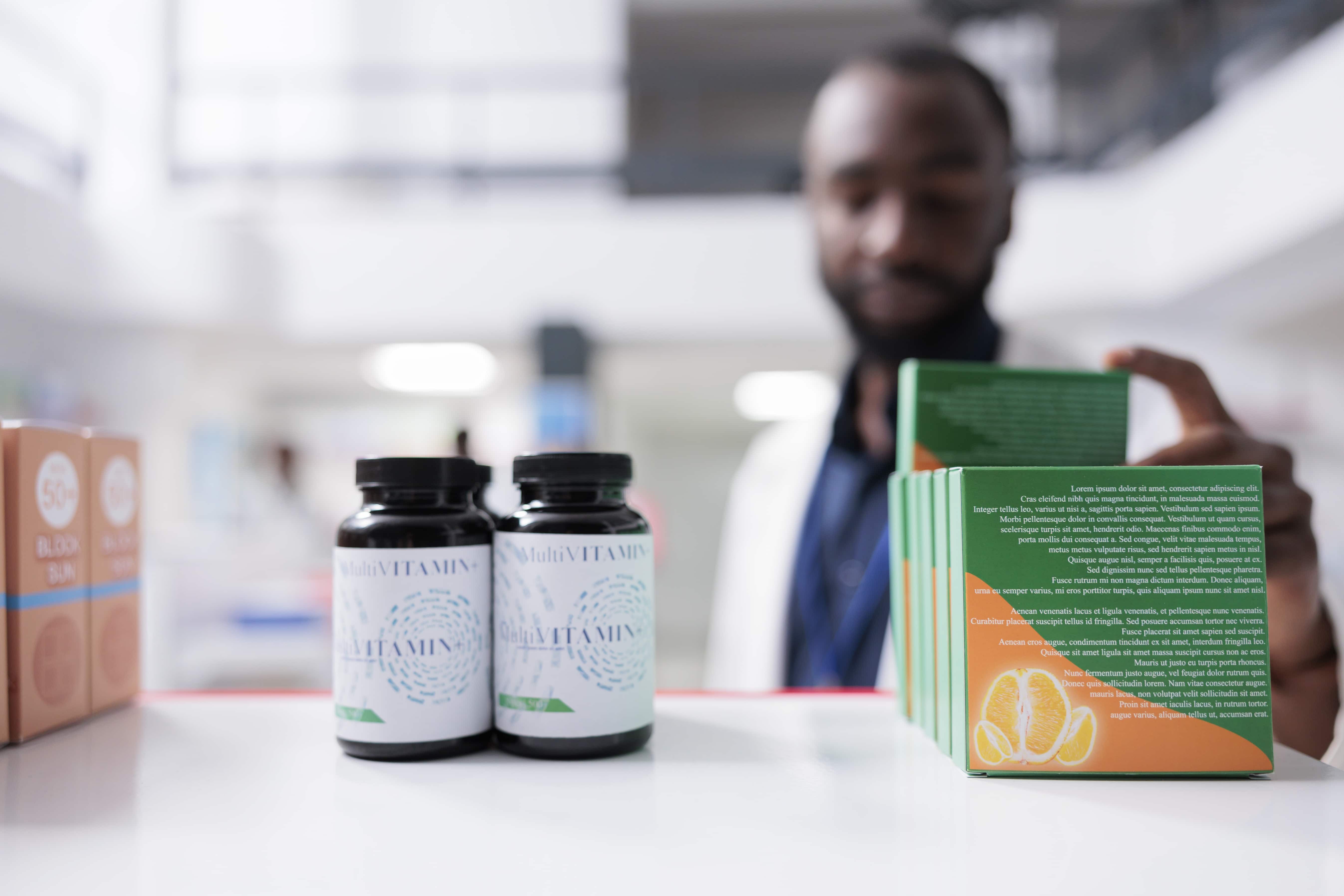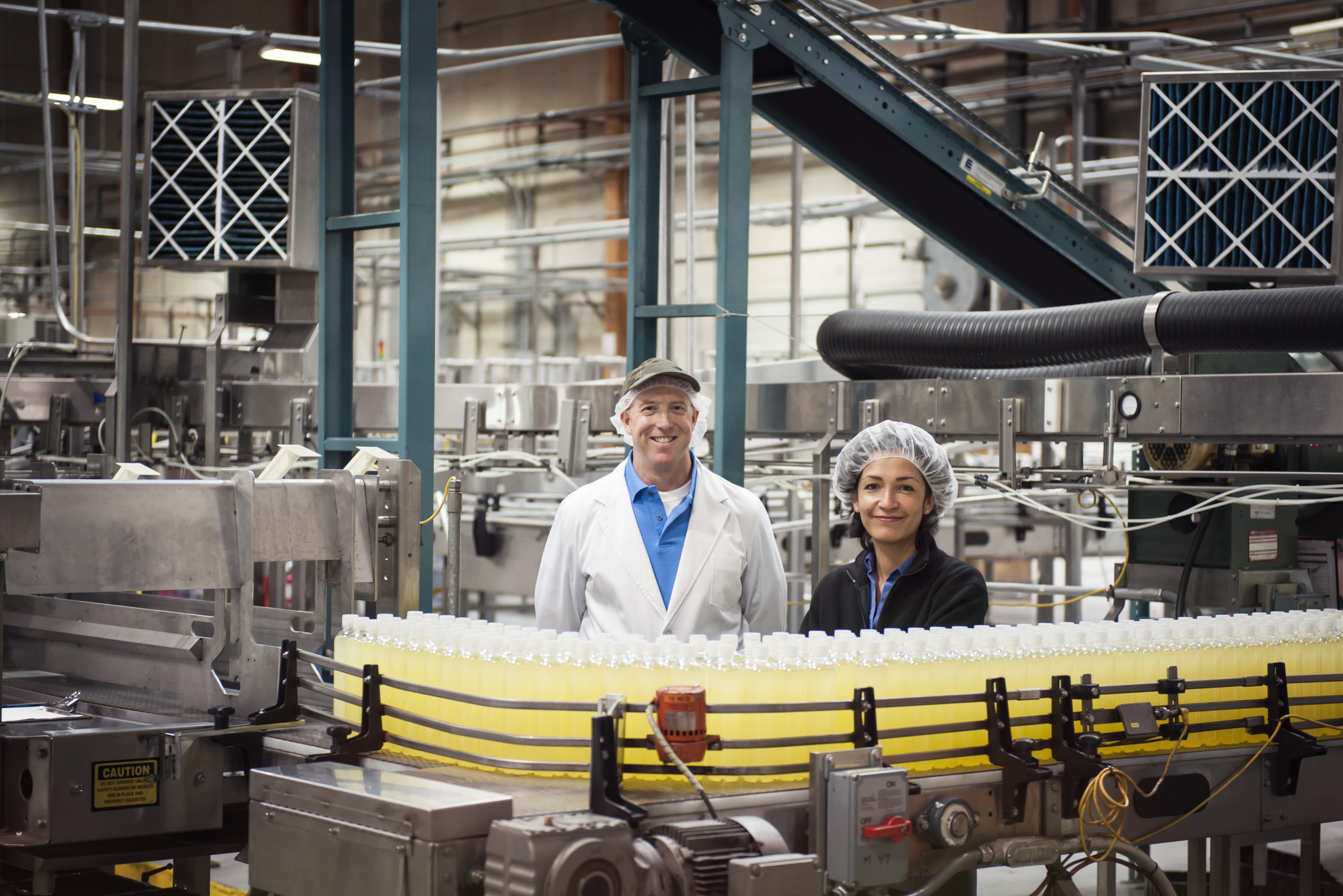
What is NSF Certification? Benefits of Working with an NSF Certified Supplement Manufacturer

What is NSF Certified in Supplement Manufacturing?
What NSF Certified Means (in Supplements)
NSF International is an independent public-health organization that sets the consensus standards and certifies products through third-party testing and site audits to safeguard consumers against harmful or mislabeled products. Meanwhile, an NSF certified supplement manufacturer implies that the products and the manufacturing facility are evaluated per the NSF/ANSI 173 and other criteria. Note that the U.S. dietary supplement market now includes more than 100,000 products, and almost one-half of adults and one-third of children and adolescents use supplements.
NSF vs. GMP vs. FDA Oversight
|
Topic |
NSF Product Certification (NSF/ANSI 173) |
GMP (21 CFR Part 111) |
FDA Oversight |
|
What it is |
Third-party product certification with facility auditing and lab testing. |
Legally required manufacturing practice for supplement facilities and operations. |
U.S. regulator that enforces laws. Does not approve supplements before marketing. |
|
Primary focus |
Verify that what’s on the label is in the bottle. Check for contaminants. Ensure certified products come from GMP-audited facilities. Ongoing surveillance. |
Ensure a controlled process and quality system so that each batch satisfies identity, purity, strength, composition, and contamination limits. |
Inspect firms, enforce cGMP, review certain notifications, monitor the market, and act post-market. |
|
Who performs it |
NSF (independent, accredited). |
Manufacturers implement. Auditors (including FDA or accredited bodies) assess. |
FDA (CFSAN and field offices). |
|
Facility audits |
Required initially and at defined intervals (annual/bi-annual). |
Required by regulation (documentation, controls, records) and subject to inspections. |
Conducts inspections for compliance. |
|
Product testing |
NSF tests finished products to guarantee label claims and screen for contaminants. Periodic re-testing after certification. |
Not specified as a third-party certification. Firms must establish and meet specs and execute appropriate tests to show specs are met. |
The FDA does not routinely test supplements pre-market. |
|
Label accuracy check |
Formal label-claim review as part of certification. |
Firms must establish label specifications and ensure labels match the master manufacturing record. |
Reviews labeling during inspections and enforcement. No pre-market label approvals for supplements. |
|
Result |
The product earns the NSF mark and is listed. Surveillance continues. |
The firm is in compliance with Part 111. No product mark. |
Compliance status. Warning letters, seizures, recalls, etc., if violations occur. |
Why NSF Certification Matters in Supplement Manufacturing
Ensures Product Safety and Quality
NSF/ANSI 173 ascertains identity and potency and confirms that what is claimed in the label is genuinely correct. Similarly, heavy metal, microbial, and pesticide screening are supplemented by formulation and label examination. In the case of sports products, Certified for Sport implements banned-substances testing on 290-plus compounds.
Builds Trust with Consumers and Retailers
Retailers now expect independent and third-party testing. Amazon mandates third-party TIC verification of dietary supplement items starting April 2, 2024. CVS only sells supplements that are third-party tested for label accuracy and contaminants. On May 15, 2019, CVS introduced its Tested to Be Trusted initiative, which required third-party testing for 1,400 products from 152 brands. Athletes and teams look for the Certified for Sport mark for less doping risk.
Helps Meet U.S. and International Regulatory Requirements
The GMP audits of 21 CFR 111 and retailer add-ons are standardized by the NSF/ANSI 455 to reduce duplicate audits. Isolation by an ISO/IEC 17065-accredited organization, which is backed by 17025 laboratories, enhances acknowledgement across the markets as well as assists in export documentation. In a practical sense, having an NSF certified supplement manufacturer makes the process of submitting onboarding retailer and distributor reviews simpler.
Core Requirements of an NSF Certified Supplement Manufacturer
- Compliance with GMP: NSF certified supplement manufacturers must follow FDA cGMPs in 21 CFR Part 111 for complete manufacturing and process control. NSF/ANSI 455-2 uses a standardized checklist to audit those FDA regulations.
- Ingredient Testing for Purity, Potency, and Contaminants: Every lot of dietary ingredients must pass an identification test, and manufacturers must confirm purity, strength, composition, and contaminant limitations. Before use or on final products, labs verify COAs and undeclared or inadmissible contaminants using proven procedures.
- Accurate Labeling and Dosage Verification: NSF/ANSI 173 certification encompasses a label-claim review so that what the label lists genuinely matches what testing finds in the bottle. FDA rules also demand product specifications for identity, purity, strength, and composition alongside testing of finished batches according to a statistical plan.
- Ongoing Third-Party Audits and Inspections: Remember, NSF certification isn’t a one-and-done. Certified sites undergo annual on-site audits and periodic product re-testing for mark maintenance. Furthermore, NSF states that certification programs include regular inspections and re-testing, along with enforcement of compliance slips.
Benefits of Working with an NSF Certified Supplement Manufacturer

- For Brands: Working with an NSF certified supplement manufacturer signals independent GMP compliance to 21 CFR Part 111. That means documented process controls, quality units, and master manufacturing records. Audits verify that these controls are in place and followed. The result is defensible, regulator-aligned operations.
- For Consumers: NSF certification includes ingredient identity checks, contaminant screening, and label-claim verification. Certified for Sport® adds prohibited drug testing. This lowers adulteration risk and mislabeling and gives a public listing to verify products.
- For Market Access: As we know, major marketplaces now want third-party verification and valid GMP certificates for supplements. The $63.63 billion U.S. dietary supplement industry in 2023 was up 3.9%, which also highlights the importance of retailer and marketplace compliance. Meanwhile, such checks smooth onboarding and keep listings live. They also support retailer acceptance of strong GMP schemes.
- For Risk Management: Dietary supplement adverse events cause 23,000 U.S. emergency room visits annually. So, 21 CFR 111 needs end-to-end quality control and records. That supports lot traceability, complaint handling, and quick investigations. Strong documentation lowers legal risk and recall and shortens issue response time.
Choosing the Right NSF Certified Supplement Manufacturer
Factors to Consider: MOQ, Lead Time, Scalability, R&D
You may start by checking whether MOQs match your demand plan. Subsequently, map lead time by steps, including raw-material release, pilot run, full-scale run, and third-party testing (prefer ISO/IEC 17025 labs). Probe scale-up limits and change control like a dietary supplement contract manufacturer would expect. That’s how you vet an NSF certified supplement manufacturer. Just as an example, a first-time production run might take 14-18 weeks, third-party release testing 5-10 business days, and MOQs around 5,000 units per SKU.
Private Label vs. Custom Formulation
Private labels are fast and have lower MOQs. You get proven formulas and shorter validation, but less control and weaker product differentiation. On the other hand, custom formulation gives control over actives, excipients, sensory, and stability to match claims and target markets. Meanwhile, expect higher research and development costs, longer timelines, and possible NDIN work if a new dietary ingredient is used (FDA’s 75-day review applies).
Long-Term Partnership Advantages
Look for a mature QMS and continuous improvement. Annual third-party GMP audits under NSF/ANSI 455-2 signal ongoing oversight. Routine training to 21 CFR Part 111, strong CAPA, and internal audits lower deviations and protect release schedules. You should expect transparent metrics on yield, scrap, complaints, and on-time delivery, plus periodic reformulation and stability updates. This is how a manufacturer shows operational stability and steady innovation.
Partnering with TCI Biotech for NSF Certified Supplement Manufacturing
At TCI Biotech, we are an NSF certified supplement manufacturer with S-grade plants audited to NSF GMP and BRC, and we run GMP, FSSC 22000, and HACCP systems. For global launches, we deal with FDA registrations and support China marketing authorization, Indonesia BPOM, and HALAL. Moreover, we formulate liquids, shots, powders, tablets, and capsules.
We offer vegan and marine options, and VeCollal is our plant-based collagen alternative. We deliver custom product development and private label support – formulation, risk assessment, manufacturing, quality, and regulatory – and can provide clinical test reports to support claims.
Talk to TCI Biotech about NSF certified supplement manufacturing or a customized solution.